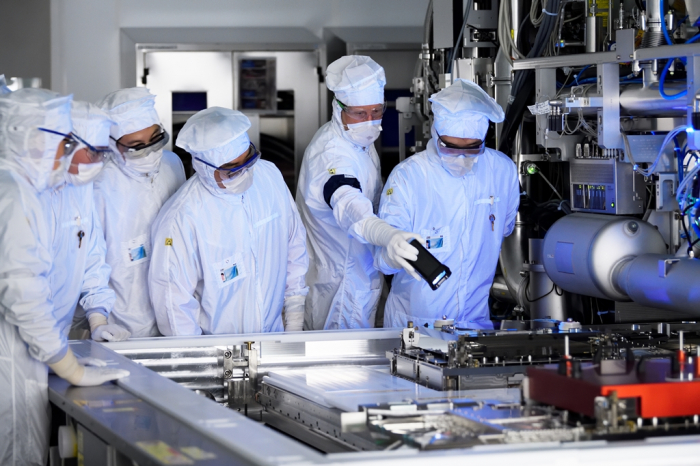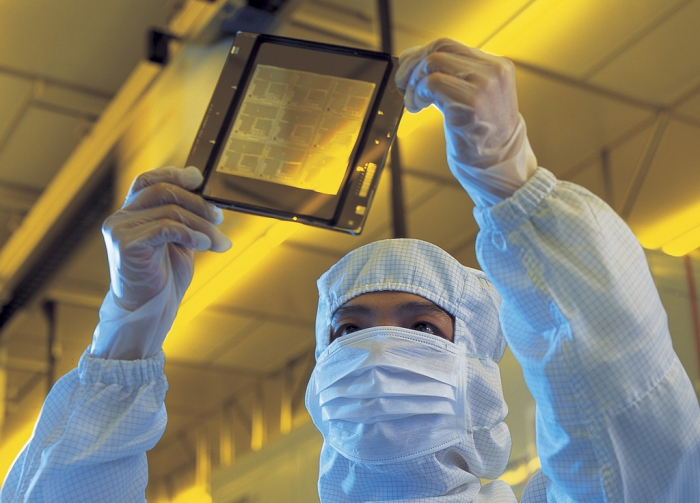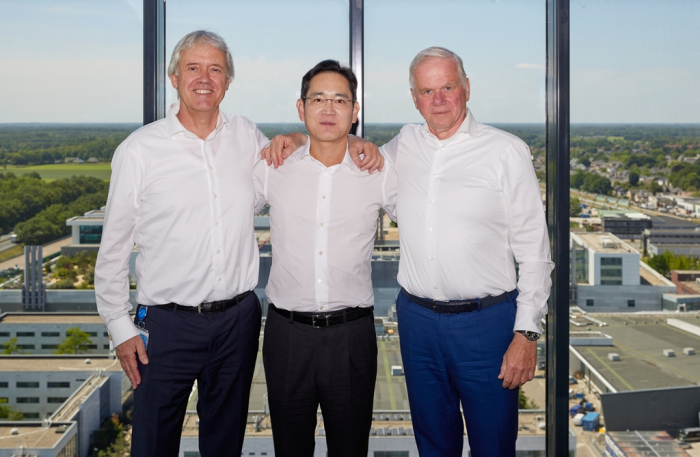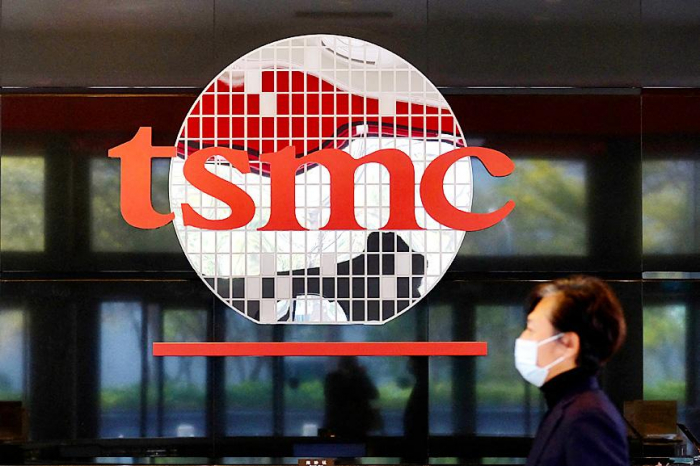
Slightly more than a decade ago, ASML Holding N.V. had to reach out to its customers such as Samsung Electronics Co., Intel Corp. and Taiwan Semiconductor Manufacturing Co. to secure funds for business operations and R&D projects.
So they came to ASML’s rescue.
In 2012, the Netherlands-based chip equipment maker issued shares with limited voting rights to three major clients. TSMC bought ASML’s shares worth a 15% stake. Intel and Samsung purchased shares amounting to 5% and 3% stakes, respectively.
With its size and scope steadily growing on the back of strong demand for such machines, known as the extreme ultraviolet (EUV) scanner that uses lithography technology, so did the Dutch firm’s share prices.
In the past three months alone, ASML’s shares, listed on the Nasdaq, have risen 15.9% to $724.65. Buoyed by expectations for a sooner-than-expected chip industry recovery, the stock hit a one-year high of $735.93 on May 26.

As the stock was flying high, early investors’ gains also ballooned, although they have trimmed down their ASML shareholdings over the years.
Samsung, which has reduced its ASML stake to 1.6% or about 6.3 million shares, saw its investment value rise to $4.56 billion, a 17-fold increase from its purchase.
The South Korean chipmaker bought 363 billion won ($278 million) of ASML shares in 2012.
Samsung sold a 1.4% stake in 2016. TSMC sold off its entire stake in ASML in 2015 while Intel has slashed its stake in the Dutch firm to around 3%.
MUST-HAVE EQUIPMENT TO STAY AHEAD
In the semiconductor industry, having cutting-edge equipment to produce advanced chips is crucial to chipmakers' survival, particularly foundries that make products for others, such as fabless firms and chip designers.

One of those devices is the EUV scanner used to draw elaborate and detailed patterns on semiconductor wafers.
Unlike conventional machines, EUV scanners can simplify the chip fabricating process by reducing the number of photolithography processes required to create finer circuits, prompting major chipmakers to compete for the equipment.
The problem is that ASML is the only maker of EUV lithography machines and it can produce about 40 units a year.
In February, ASML’s Chief Financial Officer Roger Dassen said in an interview with The Korea Economic Daily that the company plans to raise its machine production volume to around 60 this year.
One EUV scanner is said to cost about $230 million.
ASML is building an equipment repair and reuse facility and a large-scale training center in Hwaseong, Korea to better serve Samsung and SK Hynix Inc. – the world’s two largest memory chipmakers.

Samsung is the memory segment’s top player but a distant follower in the foundry or contract chip manufacturing sector behind market leader TSMC.
In its bid to catch up with TSMC, Samsung has been actively purchasing advanced EUV scanners from ASML.
“EUV equipment is costly and limited in supply. But without it, you can’t lead the market,” said an industry official.
Samsung leader Jay Y. Lee’s visits to ASML’s headquarters in recent years, including one in 2020, underscore how important it is to procure EUV machines.
Currently, Taiwan’s TSMC is the top buyer of ASML’s EUV scanners. Intel, which announced its re-entry into the foundry market in 2021, is also ramping up its purchases.
Write to Ik-Hwan Kim at lovepen@hankyung.com
In-Soo Nam edited this article.
Bagikan Berita Ini














0 Response to "Samsung Electronics makes 17-fold gains from investment in ASML - Korea Economic Daily"
Post a Comment